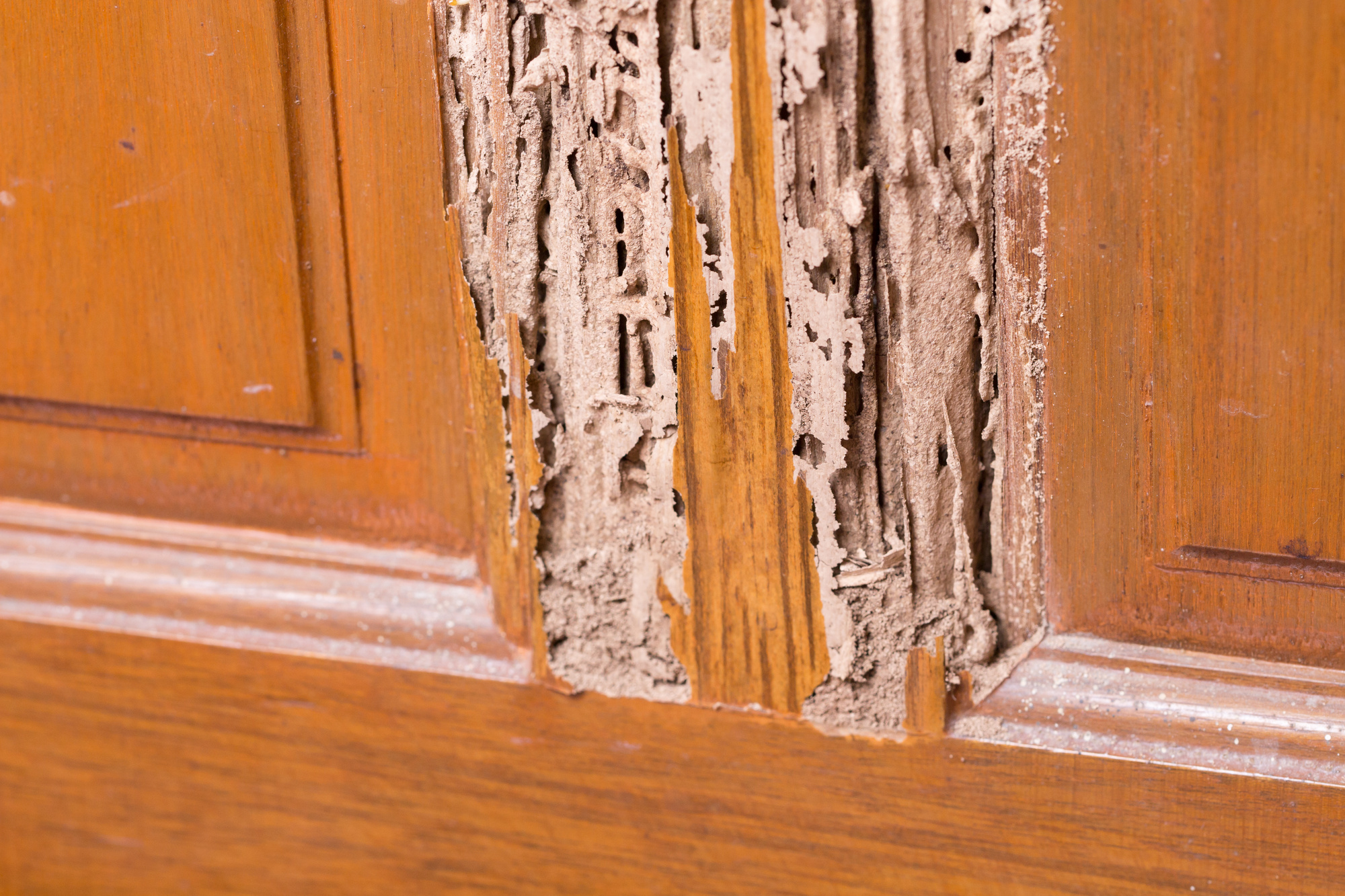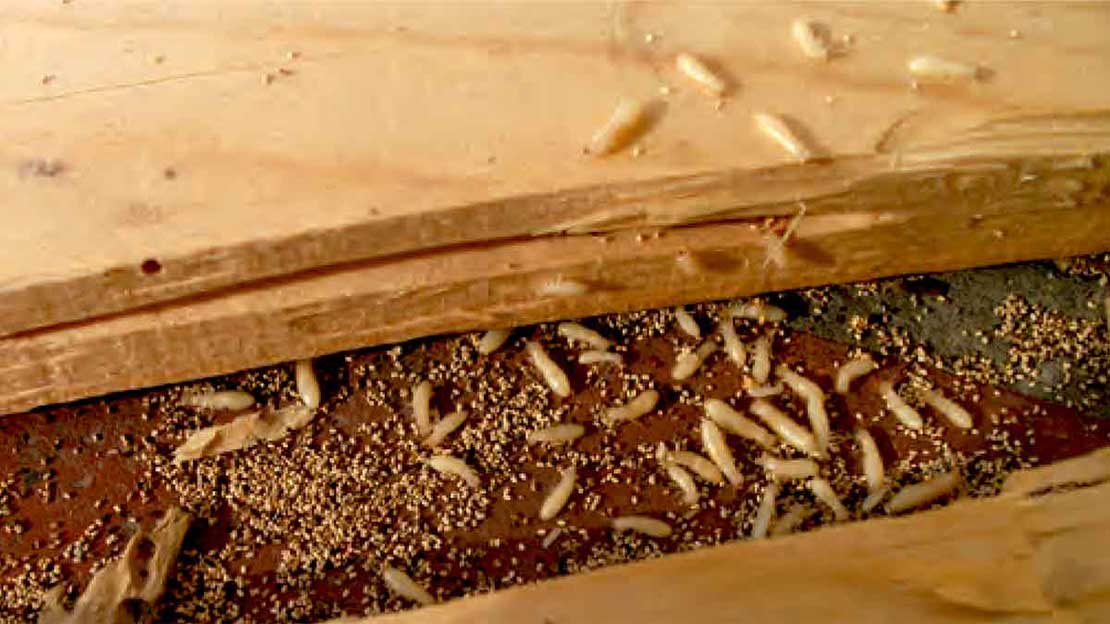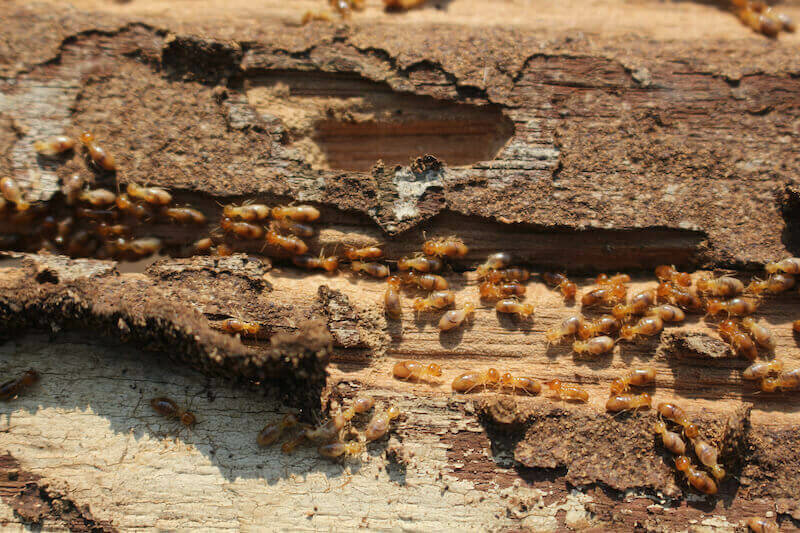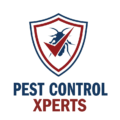Termite Removal in Denton
Expert service for homes and businesses in Lewisville and Krum
Termite Treatment in Denton, Texas, Pest Control Xperts
For homeowners in Denton, termites are a quiet but devastating threat. Our region’s expansive clay soil shifts with the weather, creating small cracks in foundations that allow Subterranean termites to enter unnoticed. Whether you own a historic pier and beam home near the Square or a modern slab foundation property in Southridge, your home is a target. At Pest Control Xperts, we provide comprehensive termite inspection, termite treatment, and long term protection for properties in Denton, Lewisville, and Krum. We understand that your home is likely your biggest investment, and protecting it from wood destroying insects is our priority.
Termites feed 24 hours a day, seven days a week, often eating the wood from the inside out. This means significant structural damage can occur before you ever see a swarm. We prioritize a meticulous inspection process to catch activity early. We utilize safe pest management practices and advanced treatment methods to eliminate the colony, not just the foragers. With clear communication and dependable scheduling, we help you navigate the process of securing your property. When you need effective defense against termites, we are ready to assist.
Termite Problems We Solve in Denton
In North Texas, we primarily deal with Subterranean termites. These pests live underground and build mud tubes to reach the wood in your home while maintaining the moisture they need to survive. They are relentless foragers. In Denton, problems often arise when soil levels are too high against the brick or when moisture accumulates around the foundation due to poor drainage. Termite treatment is not a “one size fits all” service; it requires understanding the specific construction of your home and how termites are exploiting it.
Our goal is total colony elimination. We focus on cutting off their access to your home and destroying the population in the soil. Effective pest management means creating a continuous barrier that termites cannot breach. We help you understand the severity of the threat and provide a clear path to resolution.
Common signs of a termite issue:
- Mud tubes (tunnels) climbing up the exterior foundation or walls
- Wood that sounds hollow when tapped with a screwdriver handle
- Discarded wings found on window sills or near doors, especially in spring
- Bubbling or uneven paint that resembles water damage
- Frass (termite droppings) or wood pellets near wooden structures
- Doors or windows becoming stuck or hard to close due to frame swelling
- Visible swarms of winged insects inside the home
- Cracks in cornices or door jams

Types of Termite Issues We Handle
Subterranean termite liquid treatments
For many homes in Denton, a liquid soil treatment is the most immediate way to stop an infestation. This involves creating a continuous treated zone around the perimeter of the foundation. When termites tunnel through this zone, they pick up the material and carry it back to the colony, transferring it to others. This “transfer effect” is critical for eliminating the queen and stopping the reproduction cycle.
What we look for during inspection:
- Foundation cracks and expansion joints
- Utility pipe penetrations through the slab
- Soil-to-wood contact on porches or decks
- Active mud tubes on the slab edge
How we approach treatment:
We perform trenching and rodding around the exterior of the home to apply the material deep into the soil where termites live. In some cases, we may need to drill small holes in concrete patios or driveways to ensure the barrier is complete. We then seal these holes professionally. This creates a pest barrier installation that protects the structure from all angles.
Termite baiting systems
Baiting systems are an excellent option for long term pest control, especially in properties where liquid trenching is difficult or invasive. Stations are installed in the soil around the home. Termites find the stations, feed on the bait, and share it with the colony. This method is less disruptive to your landscaping and provides continuous monitoring capabilities.
What we look for during inspection:
- Foraging activity in the yard or mulch beds
- Tree stumps or old wood piles near the home
- Sensitive environmental conditions
- Landscape features that block foundation access
How we approach treatment:
We install stations at strategic intervals around the home. We inspect these stations periodically. When activity is detected, the monitoring cartridge is replaced with active bait. This approach aligns well with integrated pest management principles, using the termites’ natural foraging behavior against them to achieve colony elimination.
Wood destroying insect reports (WDI) and inspections
If you are buying or selling a home in Denton, a WDI report is often a required step. These inspections are different from a standard home inspection; they focus specifically on termites, carpenter ants, and wood-boring beetles. We provide detailed, honest assessments for real estate transactions in Denton, Lewisville, and Krum.
What we look for during inspection:
- Past treatment drill marks
- Previous termite damage in structural members
- Conducive conditions like high moisture or earth-to-wood contact
- Active infestation evidence
How we approach treatment:
If activity is found, we provide a clear plan for remediation to help the transaction move forward. If no activity is found, we document the conducive conditions so the new owner can take preventative pest measures.

Our Termite Inspection and Treatment Approach
At Pest Control Xperts, we believe that a proper termite inspection is the most important part of the job. Our technicians are trained to spot the subtle signs of activity that are easily missed. We inspect the interior baseboards, the attic rafters, the garage walls, and the complete exterior perimeter. We pay special attention to plumbing traps in bath traps, a common entry point in slab homes.
Based on our findings, we recommend the treatment that fits your specific situation. We do not push a single product; we choose the method that offers the best protection for your specific construction type. Whether it is a liquid treatment for an active infestation or a baiting system for prevention, our focus is on results. We use professional pest control products designed for efficacy and safety.
We view safe pest management as a long-term commitment. Termite protection requires maintenance. After the initial treatment, we offer periodic pest inspections to ensure the barrier remains intact and to check for any new activity. Our pest assessment services give you the confidence that your home remains protected year after year.

Termite Prevention and Pest Proofing Tips for Denton Residents
While professional treatment is necessary to stop termites, homeowners can take steps to make their property less attractive to them. In Denton, moisture control is key. Termites love damp soil and soft wood. By managing water around your foundation, you reduce the risk of attraction. Preventative steps that actually help:- Ensure gutters and downspouts drain water at least three feet away from the foundation
- Fix leaky outdoor faucets and AC condensate lines
- Keep mulch levels at least four inches below the brick line or siding
- Remove tree stumps and dead roots from the yard
- Avoid stacking firewood or lumber against the house
- Ensure sprinklers do not spray directly onto the walls
- Repair splashing soil that brings dirt up to the wood line
- Ventilate crawlspaces to reduce humidity and moisture buildup
- Seal cracks in the foundation to limit entry points
Residential and Commercial Termite Control
Termites do not distinguish between a house and an office building. We provide residential pest control to protect the equity families have built in their homes. We understand the stress of finding damage, and we work quickly to arrest the infestation and prevent further loss. We treat single-family homes, duplexes, and townhomes throughout the area.
For businesses, termite damage can be a significant liability. We offer commercial pest services for warehouses, retail centers, and office parks. We understand that commercial construction, often involving tilt-wall or metal framing, still has vulnerable points where termites can enter and damage interior finishes. We provide documentation and long-term service agreements for property managers. Whether you need a local pest control partner for a historic venue or a new development, our pest exterminators have the expertise to handle the job.
Professional Termite Treatment vs DIY Methods
When it comes to termites, DIY methods are strongly discouraged. Termites live deep in the soil, often several feet below the surface. Pouring a store-bought liquid around the base of your house will not reach the colony. These products break down quickly and leave gaps in the barrier that termites easily find. Furthermore, you cannot treat under a slab foundation without specialized drilling and injection equipment.
Professional termite treatment uses non-repellent termiticides. This technology is crucial. Old-fashioned repellents create a wall that termites simply try to find a way around. Non-repellents are undetectable to termites; they tunnel through it, pick it up, and die later, infecting the colony in the process. This technology is generally not available to the public.
Additionally, we have the training to identify the difference between flying ants and termite swarmers, a common point of confusion. We also know how to treat safely around water lines and wells. Investing in professional pest management is an investment in the structural integrity of your home. It provides a level of protection that DIY efforts simply cannot match.
Frequently Asked Questions About Termite Control
Do you provide termite control in Denton and nearby areas?
Yes, we provide specialized termite control services in Denton, Lewisville, Krum, and the surrounding communities. We understand the local soil conditions that contribute to termite activity in our area. We serve both residential and commercial properties.
How do I know if I have termites or flying ants?
Termites have straight antennae, a thick waist, and wings of equal length. Ants have elbowed antennae, a pinched waist, and wings of unequal length. If you see a swarm inside, save a specimen if possible, and contact us for identification.
How long does a termite treatment last?
Liquid treatments can remain effective in the soil for several years, depending on environmental conditions. However, the barrier can be disrupted by landscaping or digging. We recommend annual inspections to ensure the protection is still in place.
Do you offer real estate inspections (WDI reports)?
Yes, we provide Wood Destroying Insect reports for real estate transactions. We offer thorough, honest inspections for buyers and sellers to ensure there are no surprises during the closing process.
Is the treatment safe for my garden?
We use safe pest management protocols. Liquid treatments are applied directly into the soil next to the foundation, binding tightly to the dirt. We take care to avoid run-off or contamination of nearby plant beds. We can discuss specific concerns during your inspection.
How much damage can termites do?
Termites eat wood 24/7. While they work slowly, over time they can cause extensive structural damage that is expensive to repair. They can hollow out support beams, flooring, and wall studs. Early detection and treatment are the best ways to limit the cost.
Why do I see mud on my wall?
Those are likely mud tubes. Termites build them to travel from the soil to the wood in your home while staying protected from dry air and predators. Seeing mud tubes is a confirmed sign of activity and requires immediate attention.
Is there a local termite exterminator near me?
If you are in Denton, Lewisville, or Krum, Pest Control Xperts is your local expert. We are nearby and can respond promptly. Our knowledge of local construction styles helps us identify the vulnerable areas in your home.
Service Area for Termite Treatment in and Around Denton, Texas
Pest Control Xperts is proud to serve the Denton community. From the new construction in Northlake to the established neighborhoods in Shady Shores, we cover the entire region. We understand how the shifting clay soil in our area impacts foundations and termite risk. Providing local service means we are committed to protecting our neighbors’ homes from these destructive pests.
- Denton
- Lewisville
- Krum
- Corinth
- Shady Shores
- Lake Dallas
- Argyle
- Sanger
- Ponder
We are dedicated to providing reliable and effective pest management. If you live in or near these communities, reach out to us for assistance.
Zip codes we serve: 76201, 76205, 76207, 76208, 76209, 76210, 75057, 76249
Conclusion
At Pest Control Xperts, we know that your home is your sanctuary. Termites threaten that security. Whether you are dealing with an active infestation or want to prevent one from starting, our team has the expertise to solve the problem. We help homeowners in Denton, Lewisville, and Krum protect their properties with proven, effective strategies.
Don’t let termites eat away at your investment. If you suspect activity, it is time to act. Contact us today to schedule your inspection and let us build a shield around your home.
